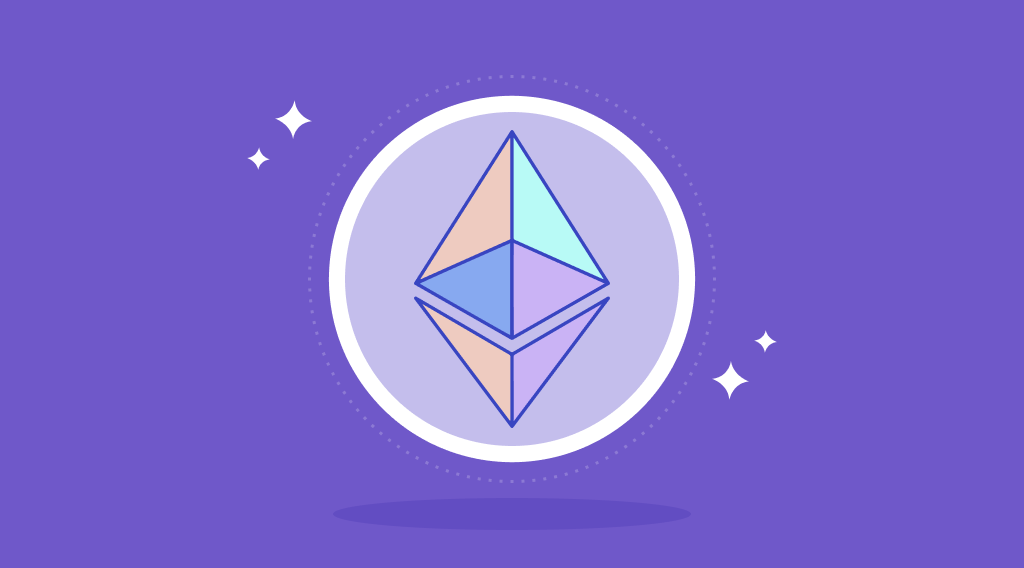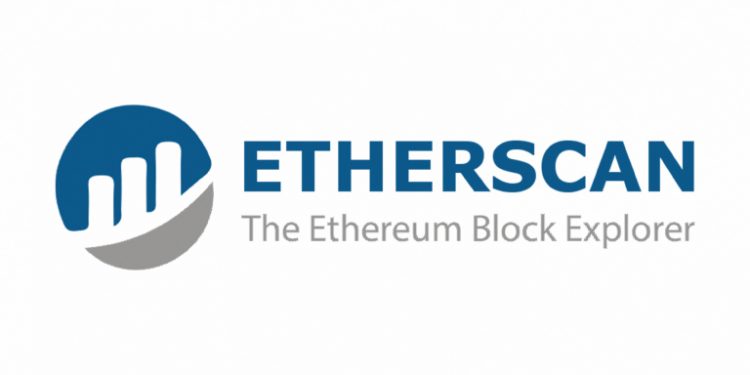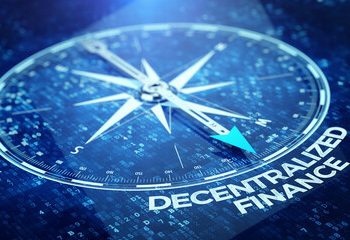Etherscan is a block explorer and analytics platform that lets you access details on all Ethereum blockchain transactions that are pending or already confirmed. Etherscan is the most trusted tool used for navigating through all the public data on the Ethereum blockchain and sometimes it is known as “Ethplorer.”
The data includes wallet addresses, transaction data, smart contracts, and a lot more. This application is self-contained and is neither sponsored nor administered by the Ethereum Foundation, a non-profit organization.
Developers at Etherscan include seasoned developers and industry professionals, who created the Etherscan app to ensure that the Ethereum blockchain is more accessible to daily users. Even though Etherscan is a centralized platform, the app does not make it easy for people to search through the Ethereum blockchain.

Is Etherscan A Wallet?
Etherescan is not an Ethereum wallet, nor is it any form of a wallet service provider. Users do not receive an Etherscan wallet whenever they search the Ethereum blockchain on Etherscan. Notably, Etherscan.io is an independent Ethereum-based block explorer. The Etherscan app keeps track of all blockchain transactions on the Ethereum network. This app then displays the results like a search engine.
This lets users find the details of transactions on the Ethereum blockchain and that gives people peace of mind in case their transferred funds are yet to appear in their wallet. While Etherscan can track activities on the Ethereum wallet address, users have to link the app to an existing crypto wallet to do that.
Is Etherscan free to use? Yes, Etherscan is completely free.
What Is Etherscan Used For?
Etherscan lets users view assets held on any public Ethereum wallet address. While using Etherscan, enter an Ethereum address into the search box to see its current balance and transaction history of the wallet under consideration. Etherscan also displays the gas fees and smart contracts involving a specific address.
The users can use Etherscan to:
- Lookup and validate smart contracts
- Determine which smart contracts have an authenticated source code and security audit
- Calculate the Ethereum gas fees with the Etherscan gas tracker
- Review and revoke access to a wallet for decentralized applications (DApps)
- View the cryptocurrency assets that are held in or associated with a public wallet address
- Keep track of the number of smart contracts a user has authorized using their wallet.
- Lookup one transaction executed by any Ethereum wallet
- Observe the live transactions happening on the Ethereum blockchain
Users can review transactions of the Ethereum blockchain on Etherscan. The transactions include the pending and failed transactions. Etherscan may also track the progress of an incoming transfer. One way to track a transaction using Etherscan is to look it up on Etherscan.io using its hash key.
The hash offers users an estimate of how long the transaction will take to confirm. Their page refreshes once the transaction is completed. Etherscan also operates as an analytics platform. Anyone is allowed to use the platform to analyze on-chain metrics like changes that affect Ether gas costs and also track their portfolio and monitor transaction history for any suspicious activity.
Only the information that is public on the Ethereum blockchain is displayed on Etherscan. Thus, information like a user’s private keys cannot be viewed on the app. Etherscan does not store any private keys and is not involved in any of the transactions shown. The app also cannot be used to solve any transaction failures.
Do You Need An Account To Use Etherscan?
Users do not need to sign up for an account before they can use the Etherscan app. Nonetheless, signing up for an Etherscan account gives users access to extra features. These features include the ability to track addresses and get notifications whenever a transaction happens. Developers can also sign up to enjoy free access to Etherscan’s blockchain explorer data and application programming interfaces (APIs).

Therefore, users with accounts can add their addresses to the ‘watch list’ on the block explorer to track and monitor their investments. Users are also allowed to set alerts so that they get notified of all incoming transactions through email. Etherscan also offers API services for the developers so that they can develop decentralized applications.
Etherscan offers these information packages for all the incoming and outgoing transactions:
- Gas fee
- Transaction hash
- Total transaction fee
- The number of blocks within which the transaction was recorded and the time at which the transaction was confirmed.
- Amount sent
- Receiver and sender addresses
How Etherscan Works
To use the Etherscan platform, just enter any public Ethereum wallet address into the search field located at the top of the Etherscan.io homepage. Doing that enables users to view all the transactions linked with that address.
Tracking A Transaction And Wallet On Etherscan
Exploring a wallet address on Etherscan under the “Transactions” tab shows a list of all ETH transactions (Txns) or the transactions that have used gas (Gwei) associated with the specific wallet.
Just type the wallet address on Etherscan’s homepage and click ‘Search’ to be redirected to a page that displays all of the wallet’s information. The data features its ETH balance and its value is denominated in the United States dollar and an overview of the wallet’s transaction history.
Click on the wallet’s Transactions tab that will open up a new page that displays details on all the transactions that involve the specific address. Details include the block height, transaction ID, and when that transaction was confirmed.
The block height is the block in which the transaction was included. The recipient and sender addresses and the total transaction fee are also shown. To explore and track a particular transaction, users require the transaction hash and transaction ID, or TxHash. A TxHash is a unique string of numbers that identifies a transaction on the blockchain.
Whenever the users input the TxHash into the Etherscan search bar, a list of information on the transaction is populated on the page. From there, users go to the Transactions tab to review extra information about the said transaction. The data includes whether the transaction status was successful, pending, or failed. It also features the total amount that was transferred.
The value of the transaction in ETH and the USD value of ETH at the time of the said transaction can also be seen. Etherscan also shows the timestamp for every transaction coupled with the transaction cost, denominated in USD.
How Does The Etherscan Gas Tracker Work?
‘Gas’ is the transaction fee that is associated with a transaction to be executed entirely and successfully on the Ethereum blockchain. Transaction costs on Ethereum are known as gas fees.
Ethereum’s network can become excessively congested. When a significant amount of traffic is running on Ethereum’s blockchain as a result of Ethereum’s auction-based model, the average gas price surges as the users compete against each other and bid to have their transactions included in the next block. Eventually, the transactions are delayed with some of them failing in the end.
Gas prices vary depending on the block that the user transaction has been included in, and the degree of network congestion. Furthermore, users might not be able to come up with an accurate estimate of the gas fees that they will be needed to pay before executing a transaction.
To accurately determine a transaction’s gas fees, it is advisable to use Etherscan’s gas tracker. The gas tracker does a lot more than just show users the difference in gas prices at different time intervals. It is also quite useful for estimating how congested the network becomes and what the transaction cost will be according to a transaction.

The Etherscan gas tracker works as an ETH gas calculator. It examines the pending transactions on the Ethereum blockchain to determine the amount of gas a transaction will need. Users get a gas fee estimate to enable them to adjust the timing of their transactions to avert cases of network traffic.
Using that strategy saves transaction costs and supports cheaper and smoother transactions, without having to deal with the anxiety that comes with not knowing whether a transaction will succeed or fail.
How To Check Wallet Balance And History Using Etherscan
To determine how the balance in a user’s wallet has changed over time, you can look up the address of the wallet on Etherscan and choose ‘Analytics’. From there, users can see the data analytics of a user’s wallet, including the user’s ETH balance, the whole transfer history, transactions, and fees paid.
Using Etherscan To Review Smart Contracts And Wallet Access
Smart contracts can be read and edited without having to look for special permissions by using the Etherscan app’s “Read Contract” and “Write Contract” features. These tabs offer real-time information on different tokens and smart contracts. Users can also use these features to initiate a token transfer and then approve smart contract transactions.
Removing a token’s access to the user’s wallet can be achieved using the Etherscan Token Approval Checker. When users interact with DApps to acquire or swap tokens, they tap directly into a user’s wallet with their permission. Thus, DApps are an appealing target for scammers who are looking to gain access to users’ Ethereum wallet addresses.
In case users see any suspicious activity or think that a DApp has already been compromised, they can use Etherscan to revoke its access to a particular wallet address. The user’s assets within the wallet will not be lost. However, the users will need to reauthorize the tokens whenever they access the DApp the next time around.
To use Etherscan to review a user’s approved token list, look up the user’s wallet address on Etherscan’s Token Approval Checker. Doing that gives users a list of all the approved smart contract interactions with that wallet. From there, the users can connect their wallet to Etherscan and click ‘revoke’ to guarantee that the particular DApp no longer has any access to the user’s wallet.
The Road Ahead
Etherscan is one of the major and leading tools for accessing reliable Ethereum blockchain data. Etherscan can track gas prices, review smart contract code, and monitor the Ethereum blockchain in real-time.
Eventually, Etherscan is free and does not need a user to register access to all of its features. In general, it is a great place to start for the users who wish to learn the full range of functionalities of a blockchain, their Ethereum wallet, and what information they can collect from a blockchain explorer.









